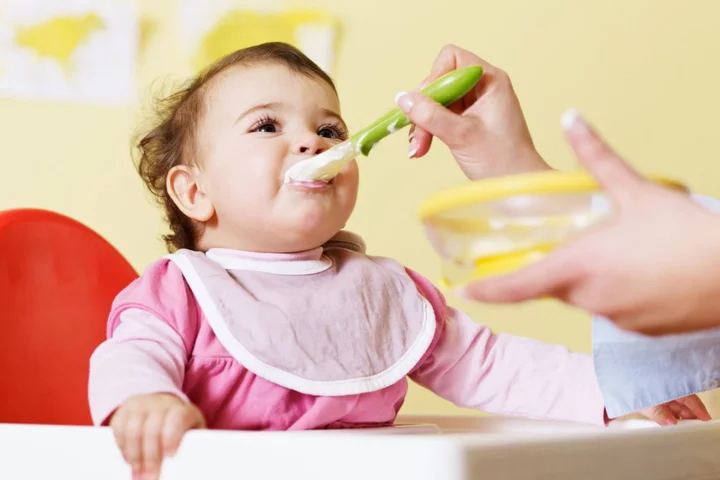
Baby food and drink guidelines needed over sugar concerns, say health campaigners
Health campaigners have called for the “overdue” release of new baby food and drink guidelines over concerns about the amount of sugar infants are consuming from popular shop-bought products. Action on Sugar, along with 16 other groups including The Royal College of Paediatrics and Child Health, Obesity Health Alliance, British Dental Association and the World Cancer Research Fund, have signed an open letter to Health Secretary Steve Barclay urging the release of the guidelines to ensure that all food and drink products marketed to babies are nutritionally appropriate. A letter has also been signed by baby food companies Babease, Little Dish and Little Freddie, calling for the release of the guidelines to create a level-playing field. Action on Sugar said many baby food brands were already reducing sugars but there were still products marketed as suitable for infants and young children with unsuitably high levels of sugars. Late last year, Action on Sugar analysed almost 100 baby and toddler breakfast products, finding that all of them included nutrition or health claims on their packaging and 86% used a “no added sugar” or “only naturally occurring sugars” claim, despite many adding sugar in the form of fruit or vegetable juices, concentrates, purees and powders. Earlier last year a British Dental Association (BDA) study of 109 baby pouches aimed at children aged under 12 months found more than a quarter contained more sugar by volume than Coca-Cola, with parents of infants as young as four months being marketed pouches that contained the equivalent of up to 150% of the sugar levels found in the soft drink. A survey of more than 1,000 UK parents with children aged six to 36 months old found 91% supported the Government in taking action to ensure all food and drinks available in the baby aisle were nutritionally appropriate according to NHS recommendations. An unhealthy diet high in saturated fat, salt and sugar and low in fruit and vegetables is the biggest cause of preventable ill health globally Dr Kawther Hashem, campaign lead at Action on Sugar It is recommended that infants under the age of two should avoid sugar-sweetened drinks and food with added sugar. After this, free sugars should provide no more than 5% of their daily energy intake (approximately 14g). Dr Kawther Hashem, campaign lead at Action on Sugar and research fellow at Queen Mary University of London, said: “An unhealthy diet high in saturated fat, salt and sugar and low in fruit and vegetables is the biggest cause of preventable ill health globally. “Given this, all food and drink companies should act responsibly and commit to improving their products as part of Government and NHS guidance and provide peace of mind for parents when buying foods for their young children.” A Department of Health and Social Care spokesman said: “We are developing guidelines for industry to improve the nutritional content of baby food and drink. “More broadly, thanks to our sugar reduction programme, we have delivered dramatic reductions in the amount of sugar in foods eaten by children – including a 14.9% decrease in the sugar content of breakfast cereals and a 13.5% reduction in yogurts and fromage frais.” Censuswide surveyed 1,004 UK parents of children aged six-36 months between November 2-3. Read More Charity boss speaks out over ‘traumatic’ encounter with royal aide Ukraine war’s heaviest fight rages in east - follow live Period advice now being offered by Amazon’s Alexa Male characters in role-playing video games ‘speak twice as much as females’ The staggering spend of wedding guests revealed
1970-01-01 08:00
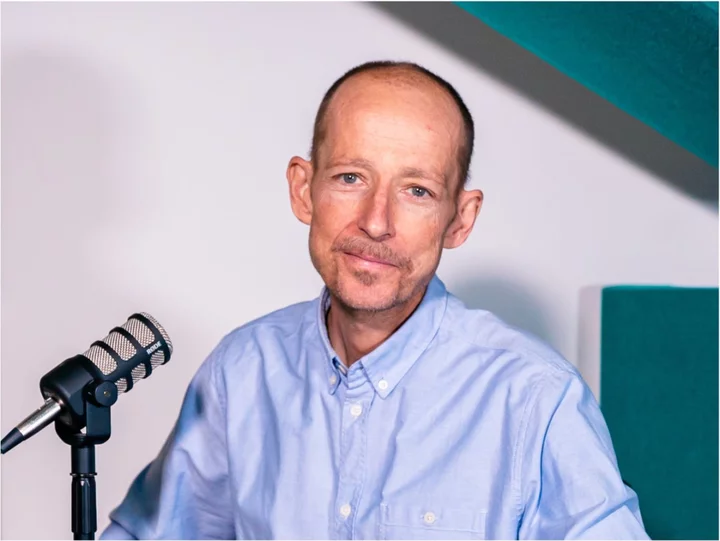
Jonnie Irwin says going public with terminal cancer diagnosis was day he began ‘living again’
Jonnie Irwin has revealed that he felt like he was living a lie before he was honest with the world about his terminal cancer diagnosis. The Escape to the Country presenter, 49, said in November that he “doesn’t know how long” he has left to live, after first being diagnosed with lung cancer in August 2020. Irwin, who also fronted the Channel 4 property programme A Place In The Sun, kept his cancer a secret among close friends and family for two years, before deciding to share the news in November 2022 when his cancer spread to his brain. In a new podcast launched on Wednesday (24 May) titled OneChat, by life insurance company AIG Life, Irwin has revealed that he hated hiding his condition from the world. "The day I came out and told the world I had terminal cancer is the day I started living again, I started being Jonnie Irwin again and I actually feel alive,” Irwin said. The presenter explained that he kept his terminal diagnosis a secret out of fear he would lose work. “The only reason I kept it a secret is because I’ve got to feed my babies, I’ve got pay the bills because when you’ve got cancer, people write you off,” he said in the podcast. Irwin and his wife Jessica have three children; three-year-old son Rex and two-year-old twins Rafa and Cormac. “I had to keep on providing for my family. I was living with such a dark cloud above me... anyone outside of my tight-knit [circle] didn’t know.” This “dark cloud” meant Irwin would hide from photographs and selfies with fans as his appearance started changing after chemotherapy. He said that telling the world was a “massive weight” off of his shoulders. “One of the things that really inspired me to go public was because I will leave a little footprint on this planet because of a TV career but I want to leave a positive footprint but I think I can educate people into living their lives better, then I’ve got something my boys can be proud of.” In March, Irwin gave a health update, telling The Sun: “I’m weak now, fragile and my memory is terrible… but I’m still here.” Read More Couple with 37-year age gap who met when he was 15 have hopes dashed Elle Fanning wows fans with daring cut-out dress at Cannes: ‘My nips could never’ ‘I spent too much money on your wedding’: Musician calls out married friend for flirting with other women
1970-01-01 08:00
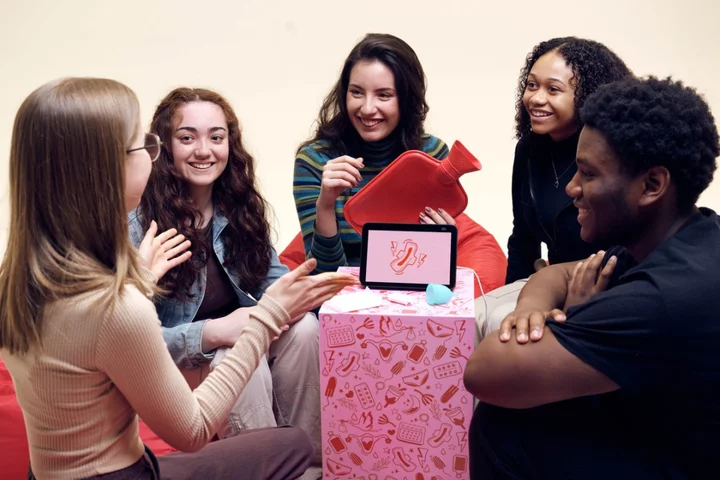
Period advice now being offered by Amazon’s Alexa
Amazon’s Alexa has been trained to offer better advice on periods. Alexa can now answer a series of detailed questions on periods by using information from the Freedom4Girls charity, whose guides have been informed by British teenagers, alongside existing content on the NHS website. Questions it can answer include “Alexa, what is period pain?”, “Alexa, can periods affect my mental health?”, “Alexa, how do you use period pads?” and “Alexa, what is a typical age to start your period?” Other questions for which Alexa has answers include “Alexa, what are reusable period products?”, “Alexa, where can I get free period products?” and “Alexa, are reusable period products cheaper?” Amazon worked with the period poverty charity Freedom4Girls to develop the new experience. Tina Leslie, founder of Freedom4Girls, said: “It’s so important that teenagers and parents alike can communicate with each other properly about periods, which is why we’re happy to be working with Amazon’s Alexa to ensure the correct resources are readily available to more families around the country. “The new features will be useful for anyone – whether you’re embarking on your first menstrual cycle, or if you’re helping someone you know prepare for their experience.” Dennis Stansbury, UK country manager for Alexa, said: “Alexa can now act as a tool to help families navigate challenging conversations around menstruation. “The hope is that having useful and relevant information available on Alexa via voice will encourage an open environment for these discussions.” Censuswide polled 1,007 UK parents with teenagers for new research to support the launch. Almost two-thirds (65%) of those surveyed said having easier access to quality information around periods would make them more comfortable having these types of conversations within their family. While 80% believed having open conversations reduces embarrassment and stigma, some 37% admitted they are too embarrassed at the moment to have open conversations about periods. A further 30% said they struggle to talk about them because they are worried about saying the wrong thing.
1970-01-01 08:00

Damar Hamlin 'has not been practicing,' says Buffalo Bills head coach Sean McDermott; safety continues 'to take it one day at a time'
Damar Hamlin "has not been practicing" but is "in the building working," Buffalo Bills head coach Sean McDermott said in a press conference on Tuesday.
1970-01-01 08:00

Patrick Beverley Plays FMK With Joe Biden, Adam Silver, and Dave Portnoy
Finally, someone asked him the important question.
1970-01-01 08:00
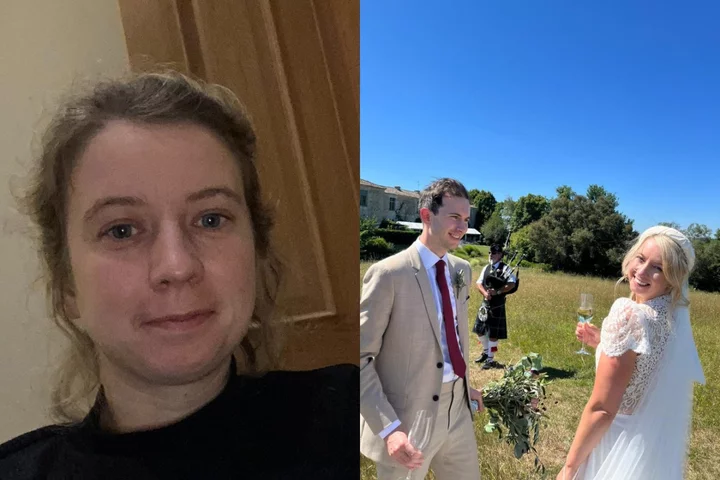
Woman reveals ‘crippling’ condition that almost called off her wedding
A woman who felt she was “trapped in this really dark world” due to her anxiety, causing her to have panic attacks, cancel her hen do, and feel she was “constantly on the verge of having a heart attack”, has said “therapy has allowed (her) to feel like (herself)” again and she has since gone on to marry her best friend who she met at school. Kirsty McKillop, 34, a strategist who lives in Walthamstow, London, said she had experienced anxiety “on and off” throughout her life, but it became all-consuming during the Covid pandemic – particularly after going through a redundancy process at her previous job in PR, which knocked her confidence and made her question her self-worth. She said she felt trapped in this “prison” that she had created in her mind and started “catastrophising” – she thought she would “lose everything in (her) life that she cared about”. “I felt like I was basically being crushed by the dark and being suffocated by it and I couldn’t get out,” she said. Kirsty decided to quit her job to look after her mental health, but then “everything went from bad to worse” as she started to experience debilitating physical symptoms. She would cry every day, vomit, experience heart palpitations, have panic attacks, feel agitated and extremely restless, and lie awake in bed until the morning. At her lowest point, Kirsty said she did not believe that she could get better, and she did not engage in “anything that might help her”. However, with the continued support of her now-husband, Liam, 34, family and friends, she began engaging in therapy from December 2021 – and gradually over time she could “physically feel (her anxiety) lifting”. She has since gone on to get married – something she previously did not think was possible – and go on her honeymoon to South Africa, and she now wishes to give the message that “life without anxiety is possible”. “No matter what level of anxiety you’re feeling, it isn’t something that you have to accept as part of life,” she said. “Whilst it is a natural human response, it’s not something you have to live with, and, going through therapy, it has just completely freed me from those feelings and I’m so much happier.” According to the charity Mind, anxiety is a natural human response when we feel that we are under threat; it can be experienced through our thoughts, feelings, and physical sensations. Kirsty had experienced anxiety at varying stages in her life, but during lockdown, when her job was at risk, her mind was “swamped” with negative and “obsessive” thoughts, with everyday places and situations becoming “bleak and scary and threatening”. While Kirsty did not lose her job, the redundancy process knocked her confidence, and her heightened emotions quickly spiralled into physical symptoms of anxiety. She felt she was in “this constant state of panic” and started “overthinking everything”. “I had really irrational thoughts that I was going to lose everything in my life that I cared about because I was not able to function day to day,” she said. “I think, eventually, it did turn into depression, and then I had quite intrusive thoughts around not wanting to wake up if I did get to sleep. “Not being able to sleep, not being able to eat, being sick, crying, feeling like I was having a heart attack, and feeling terrified of everything was really scary.” Kirsty would lie in bed and try to “disassociate” from her anxiety, but her intrusive thoughts just kept “swirling around in her head”. She then decided to quit her job in September 2021 “to give her the headspace” she felt she needed, but the lack of structure and routine in her life only made her anxiety worse. “It had taken over my head so much that I could not think rationally – everything was like, I’m worried about holding down a job, therefore, I’m not going to be able to pay the mortgage, therefore, I’m going to lose the house, therefore, I’m going to lose my husband and all my friends, and I’m going to end up with nothing,” she explained. “Despite having incredibly supportive friends who would come and just be with me for hours, I still had that fear.” Kirsty remembers a specific conversation where her parents and her then-fiance were discussing the wedding, and she thought: “This is ridiculous, there’s no way I’m going to get married in this state.” By this point, she had started losing consciousness during the day and blacking out, and she had to cancel her hen do. In November 2021, after moving back to her home town in Yorkshire, Kirsty’s family and friends encouraged her to seek professional support, as she was “stuck, trapped, in this completely different place”. Kirsty’s loved ones had looked after her throughout this period and previously suggested she seek help, but she was not willing to engage as she thought “it’s not going to make a difference”. She then started speaking to a therapist who was right for her in December 2021, and Kirsty said she was “pulled out of this horrible world”. Through having sessions once or twice a week, and with cognitive behavioural therapy (CBT), Kirsty said she felt she was “becoming much more rational” as she started to “challenge” her thoughts. The CBT focused on thinking about the facts, rather than “the feelings and the catastrophising” she had been experiencing, to try to “break the cycles of negative thinking”. She said: “When that feeling starts to lift, you think, I can get better, and I want to get better. “It’s not about fighting those thoughts, but accepting them and recognising they’re not facts.” By February 2022, Kirsty started to feel like herself again – she stopped being sick, no longer had panic attacks, and was able to sleep. In April, she started a new job as a strategist, which she now loves, and in July she married Liam and had “an amazing day”. Looking back now, Kirsty said she “dreads to think where she would have been” if she did not start having therapy, and she is beyond grateful for the support she has received from her family and friends. She does not want anyone else to go through the “absolute hell” she has, and wants to encourage more open dialogue and acceptance around mental health and anxiety, as she believes it “shouldn’t define you”. “Anxiety is a natural response, but when it gets to the point where you’re having intrusive thoughts, or it’s affecting you physically, or it’s stopping you from doing things, that’s when it’s not normal and you shouldn’t accept it,” Kirsty explained. “It’s not a state of well or unwell, it’s a state of always making sure you’re looking after yourself because life is always going to throw different challenges at you.” She added: “I enjoy life so much more without letting anxious thoughts spoil my day-to-day life… and therapy has just allowed me to feel like myself and enjoy being myself.” Kirsty is one of many who have offered quotes to inform and create a striking collection of AI art to shine a light on anxiety symptoms. The artwork, from the British Association for Counselling and Psychotherapy (BACP), has been installed outside London Waterloo – for more information, visit www.bacp.co.uk/anxietyis. Read More I was a child with mental health problems. Nothing excuses the way I was treated Mum suffered panic attacks for 30 years due to unusual phobia ‘I spent too much money on your wedding’: Musician calls out married friend for flirting with other women Charity boss speaks out over ‘traumatic’ encounter with royal aide Ukraine war’s heaviest fight rages in east - follow live
1970-01-01 08:00
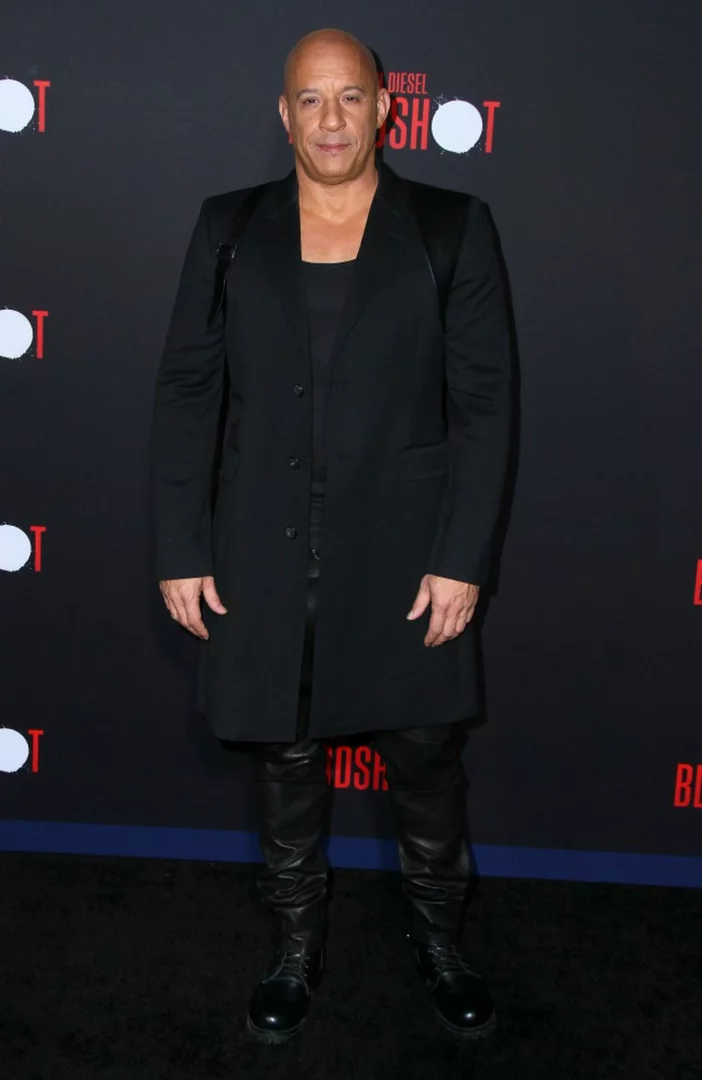
Vin Diesel confirms female-led Fast and Furious spin-off is in development
'Fast and Furious' star Vin Diesel has confirmed a female-led spin-off of the long-running franchise is in development, and he revealed the movie will be launched after the franchise's two-part "finale".
1970-01-01 08:00

Tom Brady gets a leg up on Aaron Rodgers thanks to Davante Adams team
Aaron Rodgers may own the Chicago Bears, but that's only on the field. Now Tom Brady has one-upped his former rival by actually owning an NFL team.Tom Brady and Aaron Rodgers are two of the greatest quarterbacks in NFL history. Upon the announcement of Brady's retirement, many fans lam...
1970-01-01 08:00

Davante Adams compared 1 NFC receiver to himself in Top 5 ranking
Las Vegas Raiders star Davante Adams compared himself to another high-profilewide receiver.Davante Adams' future has been a hot-button topic this summer on the heels of his dominant debut season with the Las Vegas Raiders.The six-time Pro Bowl receiver joined his former college teammate...
1970-01-01 08:00

E. Jean Carroll asks judge to amend lawsuit to seek further damages for what Trump said at CNN town hall
E. Jean Carroll has asked a judge to amend her initial defamation case against former President Donald Trump to seek additional punitive damages after he repeated his statements at a CNN town hall.
1970-01-01 08:00

Grading a potential Packers-Davante Adams reunion trade
Could Davante Adams return to the Green Bay Packers? It's feasible, especially after Adams made it clear he didn't choose Jimmy Garoppolo as his next Raiders quarterback.A Davante Adams trade back to Green Bay would be a shocker to say the least, especially with his best friend Aaron R...
1970-01-01 08:00
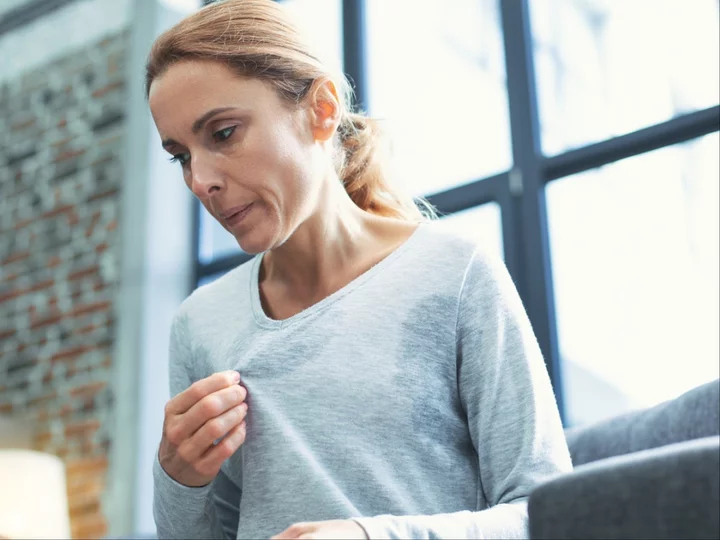
What is fezolinetant? The non-hormonal menopause treatment drug explained
The menopause treatment fezolinetant has been predicted as a “gamechanger” by experts for thousands of women who suffer from hot flushes. The drug, which is the first non-hormonal menopause treatment, was recently approved by America’s FDA. Experts are predicting it could be transformative for women for whom hormone replacement drugs (HRT) are not suitable. The drug was licensed in the US on 12 May and could be approved for use in the UK by the end of the year. According to a British Menopause Society survey, 79 per cent of women aged 45 to 65 experienced hot flushes as a result of their menopause transition, while 10 to 20 per cent describe the hot flushes as “near intolerable”. Here’s everything you need to know about fezolinetant: What is it used to treat? It works to target the menopause symptom of hot flushes. The drug that has been approved by the FDA is made by pharmaceutical company Astella, which advises patients to take one 45-milligram of its VEZOAH (fezolinetant) pill orally, once a day. A large clinical trial of fezolinetant published earlier this year revealed that, after 12 weeks of use, it reduced the frequency of hot flushes by about 60 per cent in women with moderate or severe symptoms, in comparison to a 45 per cent reduction in those who received a placebo. Women involved in the trial also said the drug reduced the severity of hot flushes and improved the quality of their sleep. How does it work? It works by blocking a brain protein called neurokinin-3, which plays a unique role in regulating body temperature in menopausal women. Respondents of the trial have said that the effects of the drug was experienced after taking the first tablet. By comparison, HRT, taken to alleviate menopausal symptoms, replaces the oestrogen that you lose during the menopause transition, either alone or in combination with a progestogen What are the side effects? According to the FDA, the most common side effects are abdominal pain, diarrhoea, insomnia, back pain, hot flush and elevated hepatic transaminases. What have experts said about it? “This is going to be a completely blockbuster drug,” said Prof Waljit Dhillo, an endocrinologist at Imperial College London who led a trial for the drug in 2017 toldThe Guardian. “It’s like a switch. Within a day or two the flushes go away. It’s unbelievable how well these drugs work. It’s going to be completely game changing for a lot of women.” Read More Adenomyosis: 5 things you need to know about the ‘evil twin sister’ of endometriosis ‘Suddenly, I saw Dad again’: The radical technology helping those living with dementia Naga Munchetty reveals womb condition adenomyosis: ‘I live every day on painkillers’
1970-01-01 08:00
